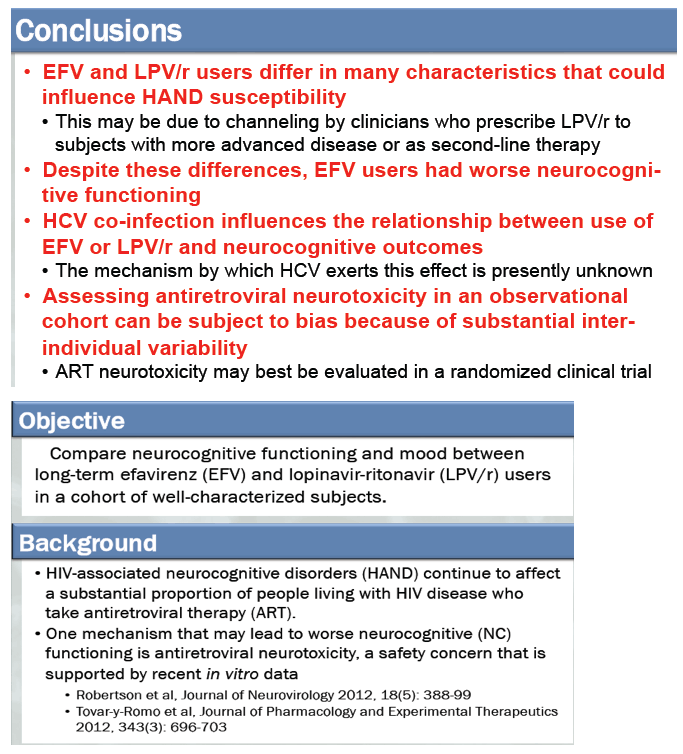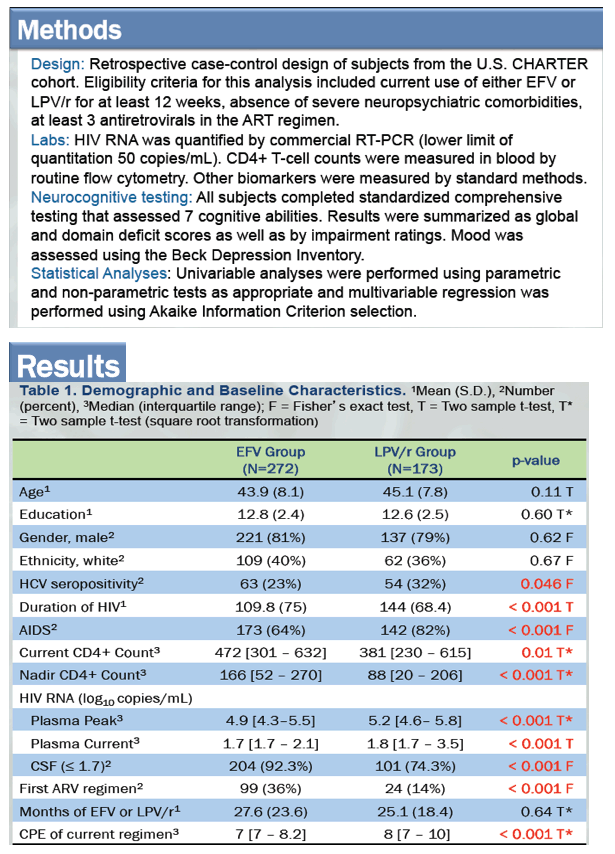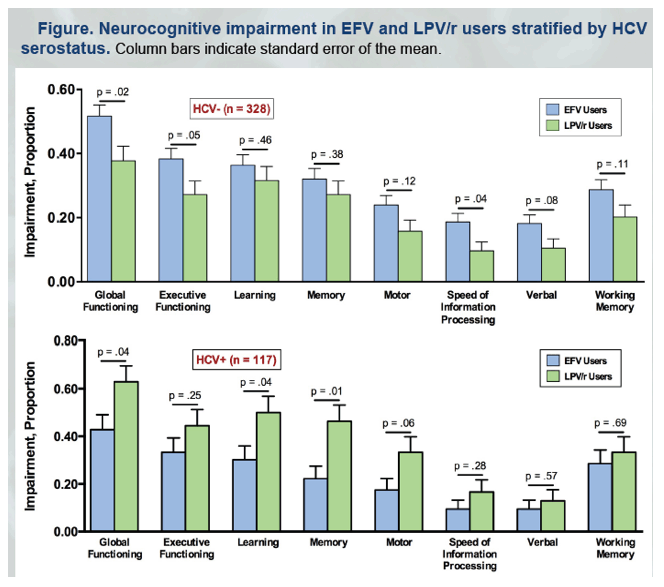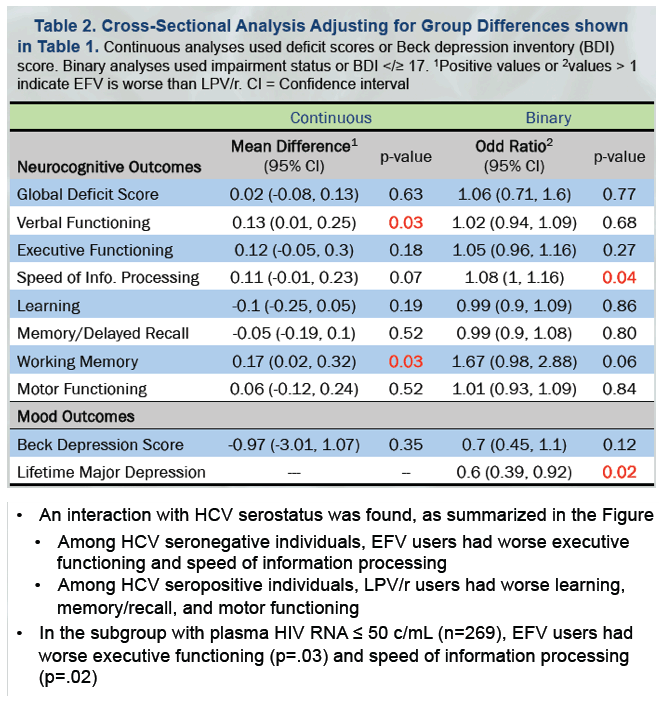 |
 |
 |
| |
Long-Term Efavirenz Use is Associated with Worse Neurocognitive Functioning
|
| |
| |
Reported by Jules Levin
CROI 2013 March 3-6 Atlanta
Scott Letendre1, Florin Vaida1, David Croteau1, David B. Clifford2, Ann C. Collier3, Benjamin B. Gelman4, Justin C.McArthur5, David Simpson6, Robert Heaton1, and Igor Grant1, for the CHARTER Group; 1University of California, San Diego, CA 2Washington University, St. Louis, MO, 3University of Washington, Seattle, WA, 4University of Texas Medical Branch, Galveston, TX, 5Johns Hopkins University, Baltimore, MD, 6Mt. Sinai School of Medicine, New York, NY
Here is the bullet summary:
First, we looked at the entire group and EFV was worse
Then, we then looked at only the subgroup with undetectable plasma viral loads and EFV was worse. We did this because this subgroup is the most clinically relevant. We didn't look at the other subgroup because people taking failing therapy are of course typically switch to effective therapy.
Then, during the multivariable analyses, we observed the interaction between treatment group and HCV. We stratified the group by HCV serostatus to understand the nature of the interaction and found the relationships summarized in the poster figure.
So, based on the analysis, EFV was worse (1) overall (2) in the subgroup with undetectable plasma viral loads and (3) in the subgroup without HCV co-infection. LPV/r was worse in the subgroup with HCV co-infection.




|
| |
|
 |
 |
|
|